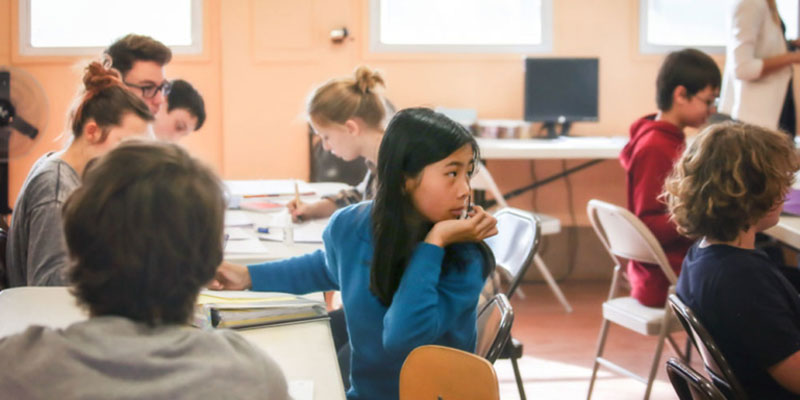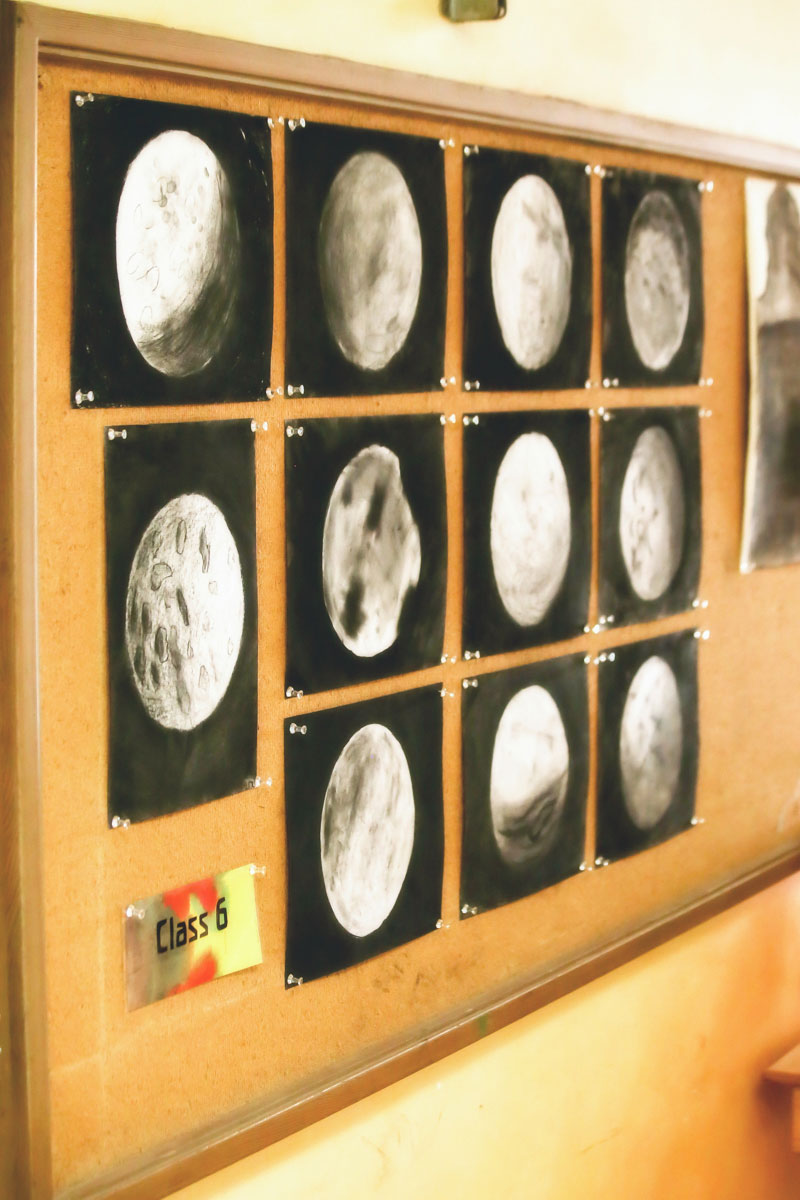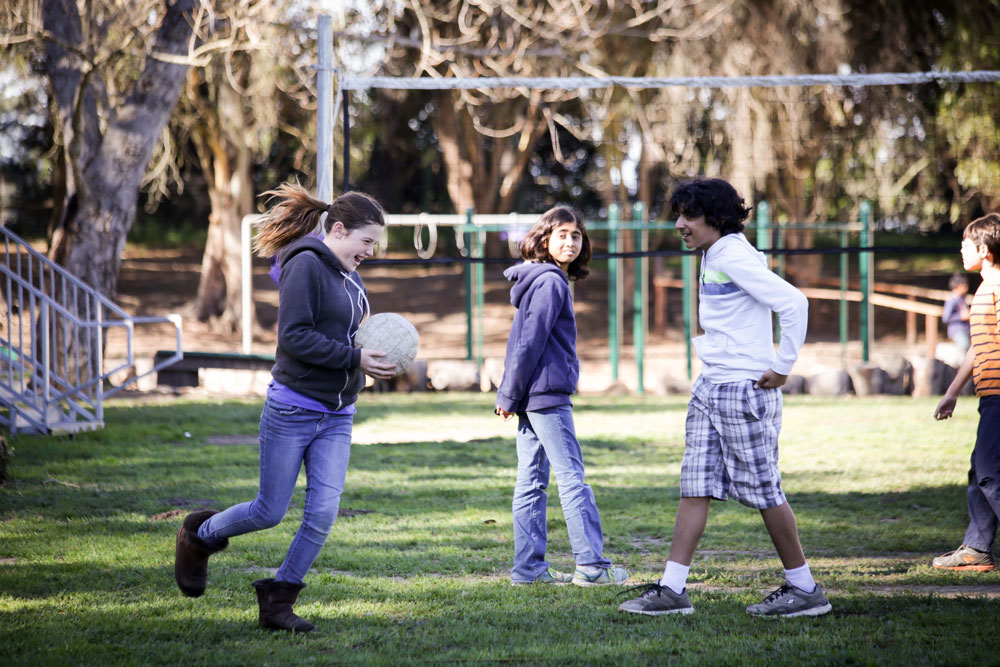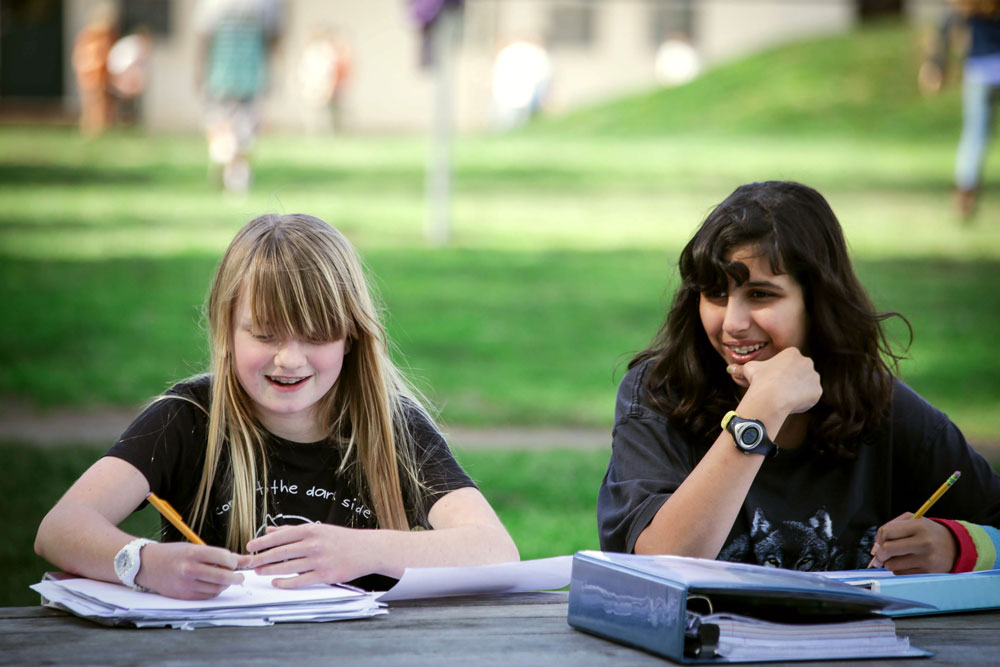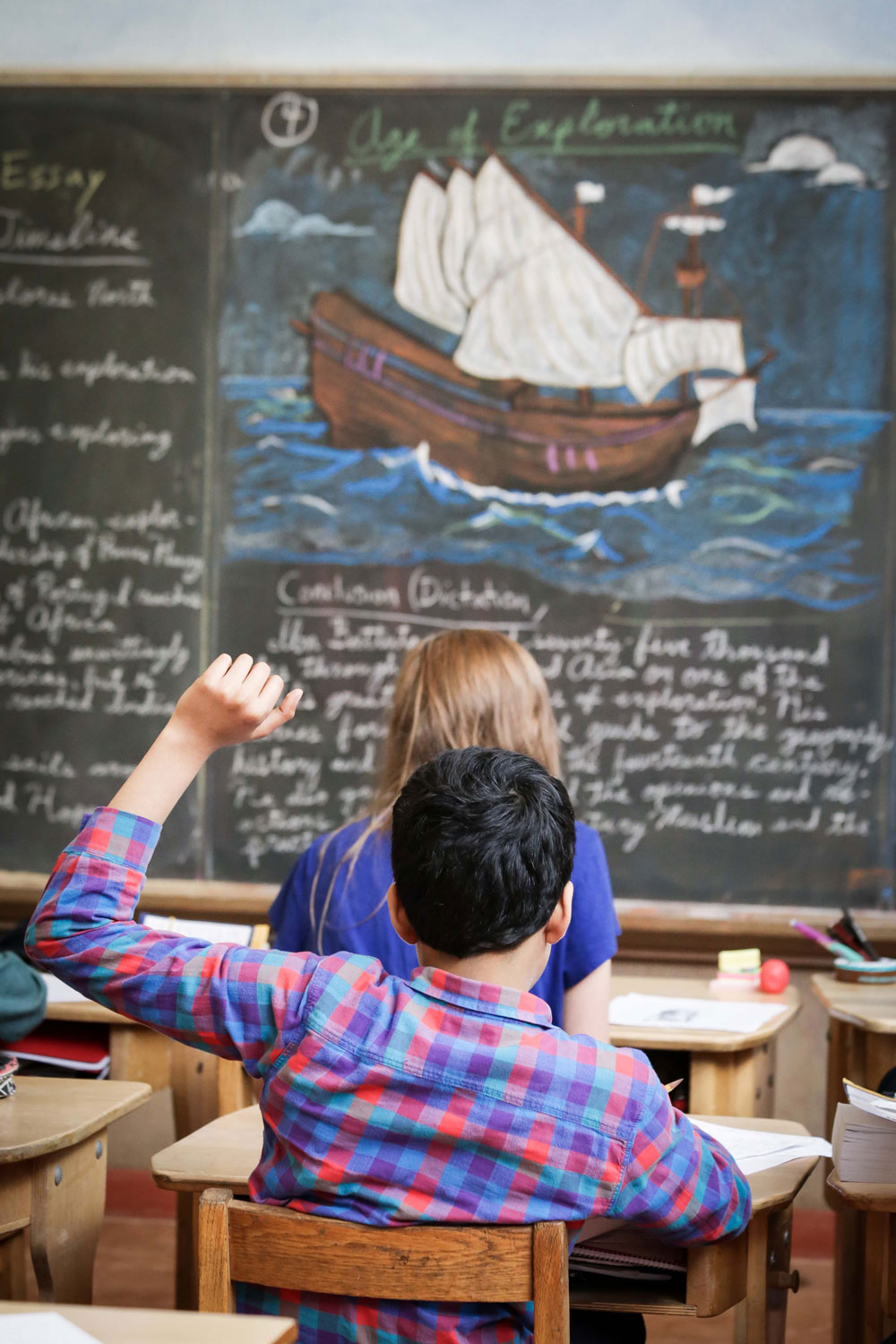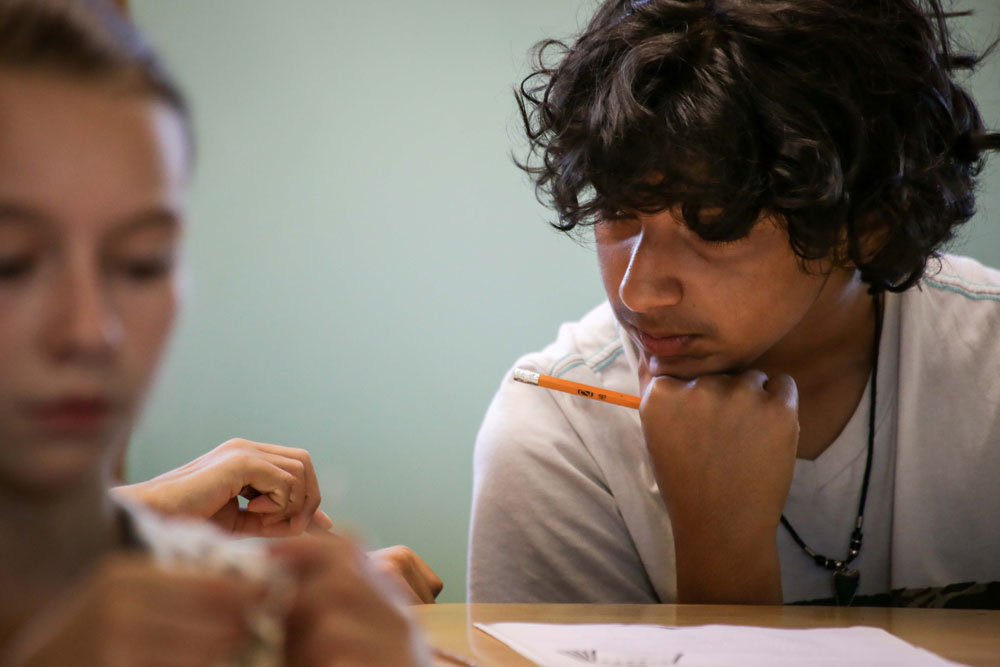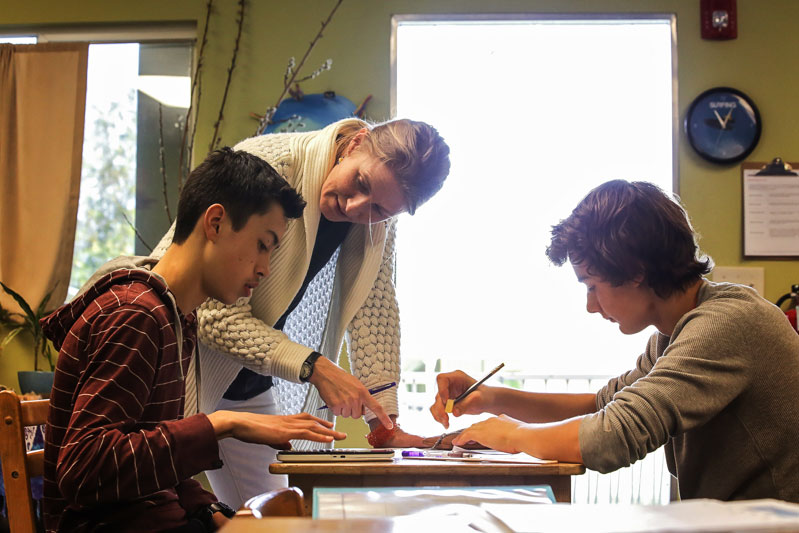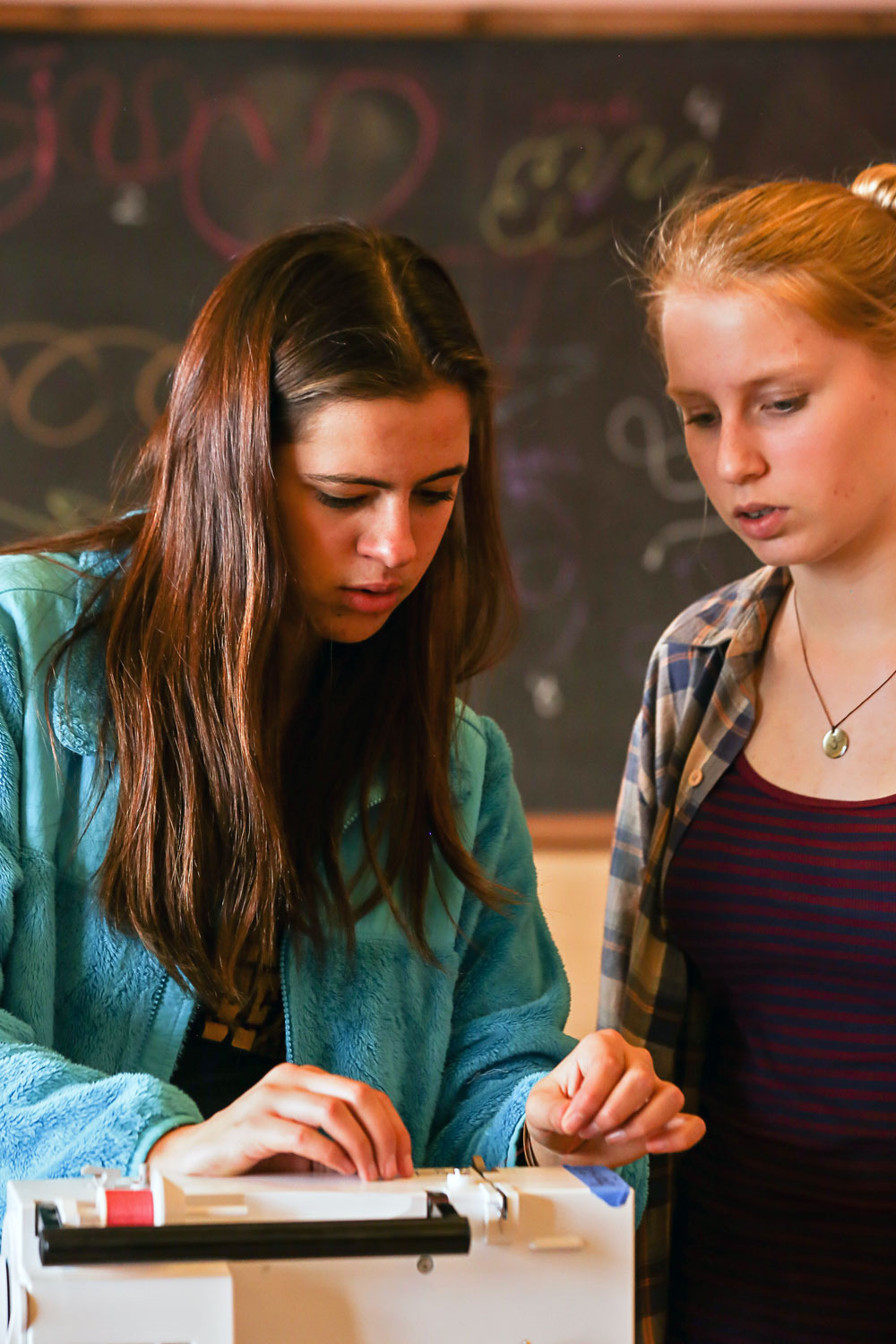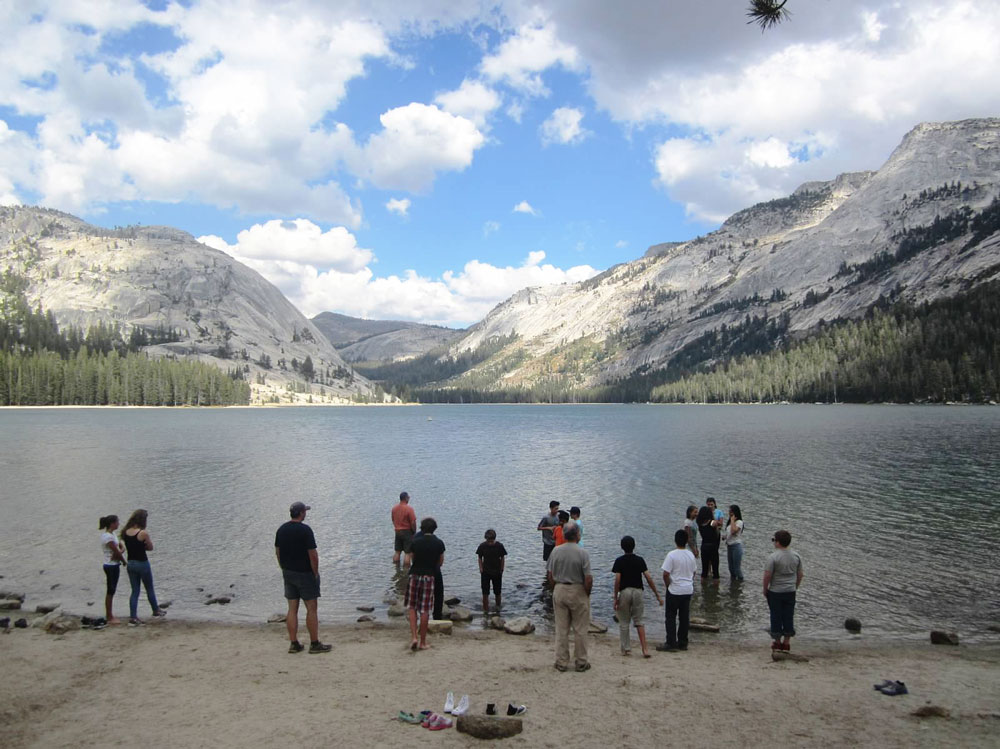The Middle School student is ready to take the next step — into more responsibility and a deeper level of complexity, understanding, and artistry. They are on the journey to becoming independent, resourceful and self-sufficient individuals. Their growing sense of themselves is leavened by a natural desire for order and clarity.
Sixth Grade
I am a middle schooler.
Your Sixth Grader is a compassion-worthy pilgrim in a whirlpool of change — no longer a child, but not yet a confirmed teenager. Sometimes argumentative, emotional and acerbic, they are always tender, as they navigate new forces in their bodies and thought. Sixth graders feel heavy and awkward, yet simultaneously begin to think logically and causally.
Because 6th graders can be egotistical, we offset these tendencies by exploring the cultural geography of unfamiliar regions and learning about the lifestyles of others. We shift our inner perspectives by learning about the Celestial Sphere in astronomy. The lawfulness of the Cosmos reflects the 6th grader’s growing sense of order. Students learn about strong individuals through the biographies and virtuous deeds of active members of society. We present a curriculum with a focus on cause and effect, asking students to use careful observations to reach logical conclusions. In history, we move from the grace of the ancient empires to the stories behind their demise and the rise of two world religions: Christianity and Islam. We’ll explore the causality in history and the beginning of the dialectical principle.
While teachers tailor the Waldorf curriculum to the needs of each class, your Sixth Grader will typically learn:
History: Roman history through monarchy, republic and empire. The Crusades, the Life of Mohammed and the study of Islam. Medieval society, including the cloister, castle and city.
Literature: Tales of chivalry, ballads, medieval history, historical novels.
English/Grammar: Review eight parts of speech, possessive nouns, adjectives, phrase and clauses, comparative adverbs, transitive and intransitive verbs, moods. Composition with emphasis on exposition, outlining and spelling.
Spanish: Basic reading tests begin, as well as humorous stories and cultural humor.
Geography: Geography of Central and South America, world geography, the Earth’s configuration and contrasts.
Science: Physics: sound, heat, light, magnetism, static electricity. Geology: minerals and crystals of the Earth and their individual qualities. Astronomy: celestial observation, phases of the moon, seasons.
Mathematics: Rates and ratios, rational numbers, expressions and equations. Develop an understanding of statistical thinking, graphing and geometry. With Math Specialist.
Drawing: Exact geometric drawings, geometric string designs, mosaic pictures, black and white drawings, chiaroscuro.
Painting: Landscapes, colors, contrasts, triads and spectrums.
Handwork: Design and make patterns for creation of a hand-sewn stuffed animal.
Gardening: Nourishment and nutrition through cooking, carving wooden spoons, willow bed tending and basketry.
Woodworking/Modeling: Use saws rasps and gouges to make a spoon. Study of concave shapes.
Music: String orchestra continues, along with soprano and alto flute, choir in 2-4 parts, formal music theory program, medieval and renaissance choral music, experience live, local music events.
Eurythmy: Gestures for musical intervals, geometric forms, copper rod exercises.
Games/Movement: Greek sports, team games and sports, field games, archery, gymnastics, and circus arts, including juggling, unicycle and balance exercises.

